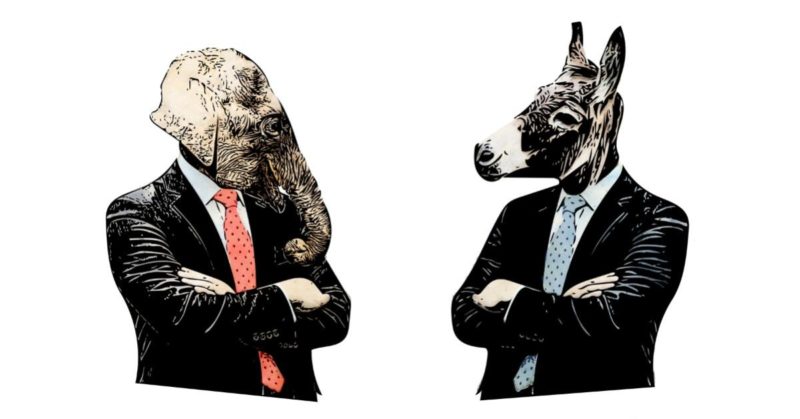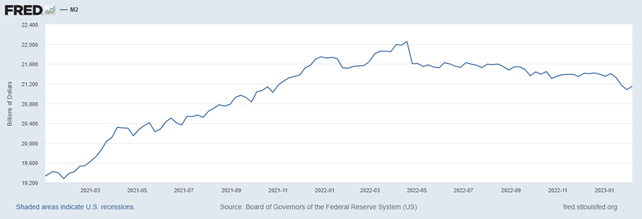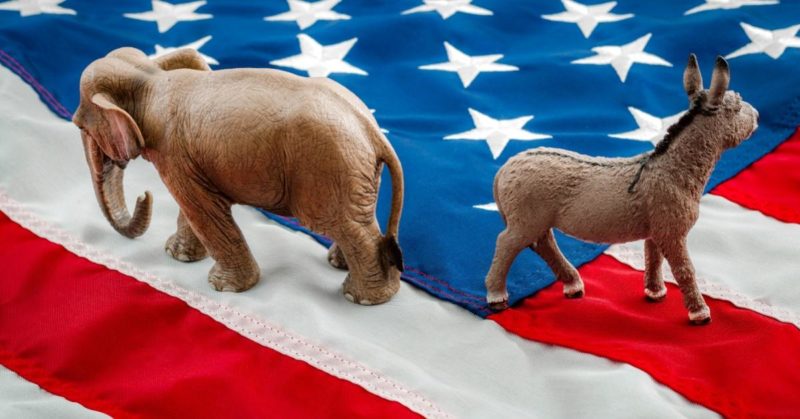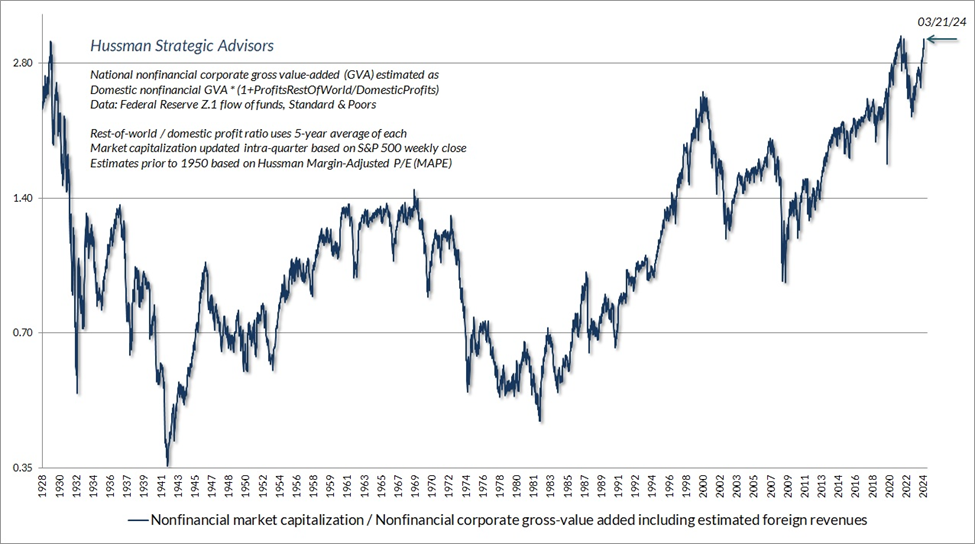Category Archive: 6b.) Mises.org
Is It Real Money or Just Artifice?
In his 1884 article “Mind as a Social Factor,” Lester F. Ward attacked the laissez-faire doctrine in an “inversion of values” that would have made Friedrich Nietzsche blush. “But how shall we distinguish,” Ward asked,
this human, or anthropic, method from the method of nature? Simply by reversing all the definitions. Art is the antithesis of nature. If we call one the natural method we must call the other the artificial method. If nature’s process...
Read More »
Read More »
Karl Marx Was Not an Economist
Karl Marx may have been a philosopher or just someone with an opinion. He was not, however, an economist.
Original Article: "Karl Marx Was Not an Economist"
This Audio Mises Wire is generously sponsored by Christopher Condon.
Read More »
Read More »
Politics Is Turning Us into Idiots
Political correctness in Western societies fosters polarization and a toxic culture of ignorance. Although people are rightly outraged by the cancellation of prominent figures, the most glaring consequence of political correctness is the proliferation of ignorance. When speakers are cancelled for contradicting sacrosanct opinions, this leads to an environment where people never arrive at the truth because ideas are not disputed in the public...
Read More »
Read More »
Economics from the Ground Up: Intellectual Community in the Age of Artificial Intelligence
The Ralph Raico Memorial Commencement Lecture.
Recorded at the 2023 Austrian Economics Research Conference hosted at the Mises Institute in Auburn, Alabama, March 16–18, 2023.
[embedded content]
The Austrian Economics Research Conference is the international, interdisciplinary meeting of the Austrian School, bringing together leading scholars doing research in this vibrant and influential intellectual tradition. The conference is hosted by...
Read More »
Read More »
Did Colonialism Impoverish Africa and Asia? Perhaps Not
Decolonization is a popular academic and media buzzword. But is colonialism actually responsible for poverty in developing countries? This question deserves an honest answer.
Original Article: "Did Colonialism Impoverish Africa and Asia? Perhaps Not"
This Audio Mises Wire is generously sponsored by Christopher Condon.
Read More »
Read More »
Why Most of the World Isn’t on Board with the NATO-Russia War
As the war in Ukraine drags on into its second year, protest demonstrations have been taking place in major European cities. They express the growing sentiment that the people are tired of the protracted conflict and fearful of what could come should the war continue even longer. Memories of the catastrophic world wars that ravaged Europe in the first half of the last century and the terrible threat of nuclear annihilation that divided the...
Read More »
Read More »
Is the Fed Trying to Bail Out the World? Sure Looks Like It
The collapse of Swiss banking giant Credit Suisse recently was a catastrophe long in the making. A quick perusal of the bank’s financial statements from recent years shows that we’re dealing with something analogous to a classic bank run. Credit Suisse’s pool of liquid assets declined more than 50 percent from 2021 to 2022, mostly in October 2022, from CHF 229.9 billion to CHF 118.5 billion as depositors withdrew their money. Despite the timing,...
Read More »
Read More »
To Fight the State, Build Alternatives to the State
Throughout its history, liberalism—the ideology today called “classical liberalism” or “libertarianism”—has suffered from the impression that it is primarily against things. This is not entirely wrong. Historically, liberalism coalesced as a recognizable and coherent ideology in opposition largely to mercantilism and absolutism throughout Western Europe. Over time, this opposition extended to socialism, protectionism, imperialism, aggressive...
Read More »
Read More »
Graceann Bennett: Brands Are Value-Generating Assets, Marketing Is Just Tactics
Peter Drucker famously identified the only two value-generating functions of the firm as innovation and marketing. We propose to differentiate brand building (or branding) from marketing, especially in this digital age. Brands are the vehicle for framing, establishing, nurturing and enhancing relationships with customers. In the digital age, marketing has become mechanized and mathematicised; it’s about numbers more than about human values and...
Read More »
Read More »
American Dissident: The Legacy of Murray Rothbard
Murray Rothbard was an elite economist, historian, and avowed enemy of the state. His legacy lives on nearly three decades after his untimely passing.
Original Article: "American Dissident: The Legacy of Murray Rothbard"
This Audio Mises Wire is generously sponsored by Christopher Condon.
Read More »
Read More »
Bipartisanship Is Not a Substitute for Voluntary Exchange
Besides using bipartisan comprehensive political reform as a cover for evasion and extortion, the many political abuses of posturing, window dressing, and maneuvering enabled do not exhaust the problems involved. Those problems are, instead, far more comprehensive, especially when it comes to the amount of usable information that is accessible, including accurate information about the true costs of government programs.
As Ludwig von Mises,...
Read More »
Read More »
ESG En Route to Etatism
The Henry Hazlitt Memorial Lecture, sponsored by Harvey and Mei Allison.
Recorded at the 2023 Austrian Economics Research Conference hosted at the Mises Institute in Auburn, Alabama, March 16–18, 2023.
[embedded content]
The Austrian Economics Research Conference is the international, interdisciplinary meeting of the Austrian School, bringing together leading scholars doing research in this vibrant and influential intellectual tradition....
Read More »
Read More »
No, We Don’t Need More Nuclear Weapons
Advocates for more military spending tell us the taxpayer must pay to expand the US's nuclear arsenal. Because of China. In truth, the US's arsenal is in no danger of not "keeping up."
Original Article: "No, We Don't Need More Nuclear Weapons"
This Audio Mises Wire is generously sponsored by Christopher Condon.
Read More »
Read More »
Does Cost Cutting Undermine Economic Growth?
Keynesian economists claim that cost cutting by companies in order to protect profits can lead to an economic slump. They believe that if everyone tries to cut costs, demand from retrenched workers for goods and services weakens, and as a result corporate revenues and profits come under pressure. This necessitates new layoffs, and the downward spiral accelerates.
Popular thinking presents economic activity as a circular flow of money: spending by...
Read More »
Read More »
Defending Private Property: Principles of Justice in Rothbard’s Ethics of Liberty
The Murray N. Rothbard Memorial Lecture, sponsored by Steven and Cassandra Torello.
Recorded at the 2023 Austrian Economics Research Conference hosted at the Mises Institute in Auburn, Alabama, March 16–18, 2023.
[embedded content]
The Austrian Economics Research Conference is the international, interdisciplinary meeting of the Austrian School, bringing together leading scholars doing research in this vibrant and influential intellectual...
Read More »
Read More »
Why Fractional Reserve Banking Is behind Bank Failures
Drug addicts suffer major withdrawal symptoms when they go cold turkey. In the case of high-tech startups and their banks (like Silicon Valley Bank), the super-low-interest-rate stimulant has been taken away by the drug dealer (the Fed) via interest rate hikes. With cheap credit drying up, firms switched to pulling cash out of SVB, all while the same interest rate increases caused the value of SVB’s assets to fall. SVB’s balance sheet couldn’t...
Read More »
Read More »
The Bank of England: Money Creation in Their Own Words
Central banks usually don't admit their guilt in the destruction of money, but the Bank of England unwittingly comes clean.
Original Article: "The Bank of England: Money Creation in Their Own Words"
This Audio Mises Wire is generously sponsored by Christopher Condon.
Read More »
Read More »
The Last Lie Government Will Ever Tell
The more powerful a government, the more likely it is to engage in war and conquest. Case in point: US involvement in Ukraine.
In 2014 the US led a coup that displaced a “democratically elected” president, Viktor Yanukovych.
In November 2013, . . . Yanukovych rejected a major economic deal he had been negotiating with the EU and decided to accept a $15 billion Russian counteroffer instead. That decision gave rise to antigovernment demonstrations...
Read More »
Read More »
Socialism Isn’t about Creating Economies. It Is about Amassing Political Power
Most socialists are not misguided about how to have a prosperous economy, for that is not their goal.
Original Article: "Socialism Isn't about Creating Economies. It Is about Amassing Political Power"
This Audio Mises Wire is generously sponsored by Christopher Condon.
Read More »
Read More »
Influencers and Subjective Value: They Have Something to Teach Us
The latest from the world of social media is the role of "influencers." There is a perfectly good economic explanation for their popularity.
Original Article: "Influencers and Subjective Value: They Have Something to Teach Us"
This Audio Mises Wire is generously sponsored by Christopher Condon.
Read More »
Read More »






























